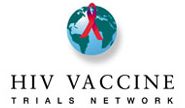News from the new Aids Vaccine. The study involved 16000 volunteers from Thailand shows promise with a 30% effective rate in preventing HIV. Sanofi-Aventis (SNY) and VaxGen (VXGN) were the stocks involved. Sanofi is approaching a 1 year high trading at 36.76 while VaxGen is experiencing a strong sell-off closing at 0.68 after reaching a high of 0.999 in OTC trading.
In 1995, Drs. Francis and Nowinski, a Seattle-based retrovirologist and entrepreneur, led the spin-off of the Genentech HIV vaccine effort, forming VaxGen to concentrate on further development of AIDSVAX.
The VaxGen team then developed the bivalent form of AIDSVAX to increase the vaccine's potential to protect against additional strains of HIV. Genentech, VaxGen's manufacturing and development partner for the vaccine, has manufactured large quantities of the bivalent AIDSVAX for the upcoming Phase III clinical trials.
"We are proud of the role Genentech played in the development of this vaccine. We congratulate VaxGen's team and support them as they continue this vital work," said William D. Young, Chief Operating Officer of Genentech and a member of VaxGen's board of directors.
VaxGen, based in South San Francisco, Calif., is a biotechnology company committed to making an HIV vaccine for worldwide use. Genentech, one of the world's leading pharmaceutical biotechnology companies, is also based in South San Francisco and is VaxGen's largest shareholder
This vaccine needs more devolopment, mostly with efficacy, but there are other stocks in search for a HIV vaccine.
Other companies searching for the HIV vaccine:
PRO542 Progenics Pharmaceuticals (PGNX) HIV
PRO 140 Progenics Pharmaceuticals (PGNX) HIV
HVTN 502 Merck (MRK)
HVTN 503 Merck (MRK)
Top Newswire Coverage from the HIV Vaccine Clinical Discovery.
That's a step in the right direction, but those are modest results; for any other disease, preventing infection in fewer than a third of the tested cases wouldn't arouse much hype or hope. But with the HIV virus, after 25 years of attempts and failures, some fairly recent, it's no wonder everybody is excited for this potential breakthrough.
The experimental vaccine is a combination of ALVAC, from Sanofi Pasteur, the vaccine division of Sanofi-Aventis (SNY), and AIDSVAX, originally developed by VaxGen (VXGN) and now held by the nonprofit Global Solutions for Infectious Diseases. Neither vaccine worked individually in previous trials, but the combination, called RV144, showed modest results. (Neither vaccine causes HIV, separately or together.) The trial was a collaborative effort among the U.S. Army, the Thai Ministry of Public Health, the National Institute of Allergy and Infectious Diseases, the National Institutes of Health, Sanofi Pasteur, and GSID.
16,402 volunteers in Thailand participated in the trial, which opened in 2003. Half received the vaccine, and half placebos; all were counseled on HIV prevention. Of the 8,198 people injected with the placebo, 74 contracted HIV; of the 8,197 who got the vaccine, 51 got the virus -- a difference the collaborative effort calls statistically significant. More details will be given at the AIDS Vaccine Conference in Paris in October.
Researchers seemed surprised. "These results show that development of a safe and effective preventive HIV vaccine is possible," said Col. Nelson Michael, director of the U.S. Military HIV Research Program, in a statement. "While these results are very encouraging, we recognize that further study is required to build upon these findings."
The U.S. HIV/AIDS epidemic began in 1981, according to the NIAID; 565,927 people in the U.S. have died of AIDS. Globally, 33 million have lived with HIV/AIDS, and 2 million died of related illnesses in 2007.
But many challenges lie ahead. Different strains of HIV exist throughout the world; those common in Thailand unusual in the U.S., Africa, and elsewhere. Scientists will need to determine how long the protection lasts, whether booster shots will be needed, and so on. And some in the scientific community are skeptical; Jon Cohen at Science Insider explains that many AIDS vaccine researchers had predicted that the study would fail. They are now "dumbfounded -- and circumspect": concerned that the results came by chance.
This is the third big vaccine trial since 1983, when HIV was identified as the cause of AIDS, the AP reports. As recently as 2007, Merck & Co. (MRK) halted a study of its experimental vaccine after seeing that it actually increased the risk of infection. Before that, in 2003, AIDSVAX also failed in trials.
Vaccine makers might try to license the two-vaccine combo in Thailand. The U.S. Food and Drug Administration will need more studies before the vaccine can be considered for U.S. licensing, and its effectiveness will most likely need to be higher before it gets approval.
While Sanofi shares are down today, VXGN's are up over 10 percent.


No comments:
Post a Comment
Note: Only a member of this blog may post a comment.